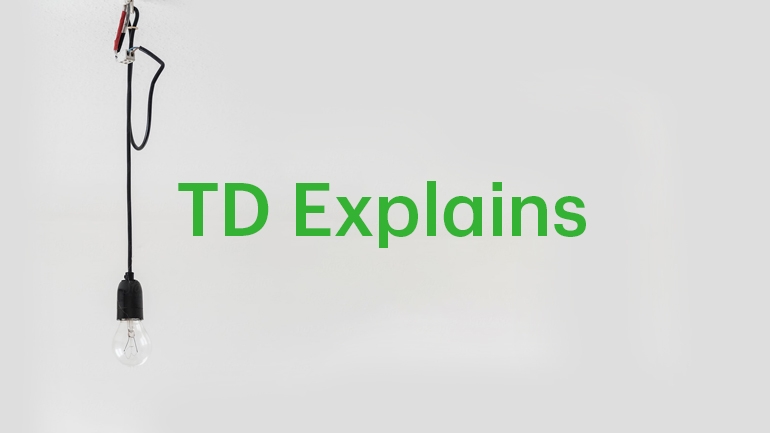We understand customers have questions about our products and how they work. In the first instalment of our TD Explains series, we take a look at creditor insurance.
Deciding whether to get creditor insurance is a personal choice, and at TD we believe it's important to provide customers with the right information about our products to ensure they can make an informed decision to best fit their financial needs.
Here are some quick facts about what customers need to know about creditor insurance.
What is it?
Creditor insurance is an optional group insurance product that provides coverage for a customer's insured balance on mortgages, loans, lines of credit or credit cards when experiencing a covered loss, which can include death, accidental dismemberment, critical illness, or disability.
A few examples of what this means:
- Balance Protection Insurance on a credit card can provide coverage for involuntary unemployment, for instance, in a case where a customer is laid off from their job by their employer.
- Or, for a customer who purchases creditor insurance on their mortgage which includes critical illness coverage and then suffers a covered critical illness, the insurance benefit can pay off the insured mortgage balance up to the maximum amount that is specified in the certificate of insurance.
It is important to note that the amount that is covered, as well as the specifics of the certificate of insurance - which is a document that provides details about the coverage, including what is covered - will differ depending on the product (e.g. loan, line of credit, credit card, mortgage, etc.).
How much does it cost?
The premium a customer pays depends on the creditor insurance product they have. For example, it could be based on the balance that is insured either at the time of application or the time of the claim. Other elements also may factor into the cost depending on the specific coverage.
How are claims processed?
After a customer submits their claim, the insurer will review and validate the supporting documentation in accordance with the terms, conditions and exclusions outlined in the certificate of insurance. And, when a claim is paid out, the amount paid out will be applied directly to the mortgage, loan, line of credit or credit card that the customer has purchased creditor insurance for.
Before choosing any insurance product, customers should speak with their financial institution or insurance company to obtain the necessary information to help them make the best possible decision. For more information on TD creditor insurance products click here.
